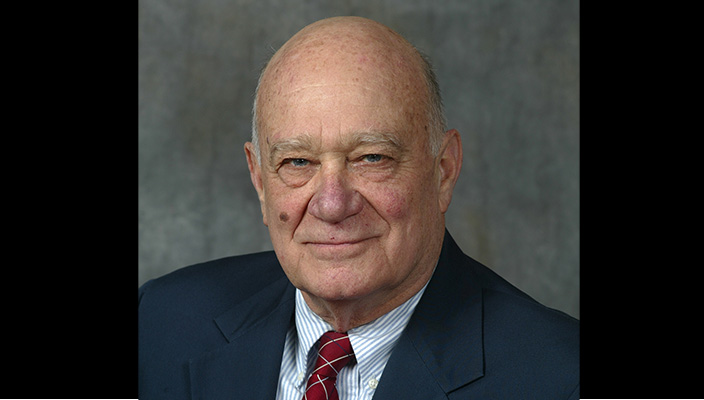Federalism was the midwife for the birth of the United States of America. The delivery of a new nation took place during a succession of crises.
As the esteemed American historian Henry Steele Commager emphasized, we could easily have become an earlier version of Latin America with 20 separate, independent nations. The formation of a United States was an extraordinary achievement.
The colonies had been separated in many ways, and they were often at odds with each other – even as they shared protests against the expanding, unjust power of the British government. At several points during the clashes, the British (sounding like an autocratic Trump) literally said: “We have authority over the American colonies in every respect whatsoever.”
Even in 1774, when the British passed the Quartering Act, with Parliament’s discussions about placing British troops in private American homes, it was a huge challenge (as John Adams noted), to “get thirteen clocks to strike as one.”
Crisis unity during the Revolution extended beyond The Critical Period of the 1780s; it provides a template for American resourcefulness during times of peril and dysfunctions.
Our system of federalism is properly referred to as “That Delicate Balance.” Achievements depend on the skills and values of state and national leaders – on their abilities to cooperate, to learn from each other, and to show flexibility.
Is it fair to say that Donald Trump has been deficient in all of these attributes? Lifelong conservative Republicans, Max Boot and Steven Schmidt, said they had to revise their views of Trump from “the worst modern President” to “the worst president in all of American history.”
During the past week two generals, who were once celebrated by Trump, called him a “divider” and a “threat to democracy.” First, former Secretary of Defense General Mattis issued one of the strongest attacks ever made against an American president. A day later, former Chief of Staff General John Kelly expressed his total agreement with General Mattis.
Have we ever had an American president who celebrates himself the way Trump does (saying “perfect” applies to his conduct)? Now, with more than 110,000 Americans dead from the coronavirus pandemic, Trump says the total would be higher than a million if he had not “acted quickly” and so “effectively.”
What do responsible analysts have to say about his leadership? Studies by MIT, Columbia University, and others said tens of thousands of lives could have been saved if the president had called earlier for social distancing and lockdowns. Trump’s response was to say that Columbia is “a liberal, disgraceful institution . . . all the people they cater to were after me.” Trump now conveniently ignores his statement that the coronavirus was “another Democrat hoax,” that “it would be gone in a few days.”
Critics beware: Mr. Trump is threatening to shut down media that challenge his views – most recently Twitter fact-checked two of his many unfounded conspiracy views, voting by mail and journalist Joe Scarborough. The conservative Wall Street Journal noted in an editorial (5/27/20): Donald Trump “traffics in conspiracy theories” but “his latest accusation [against Scarborough] is ugly even for him.”
The Wall Street Journal concludes: “Mr. Trump is debasing his office and he is hurting the country in doing so.” In a Washington Post column this week, lifelong Conservative George Will refers to Trump as “The Crybaby-in-Chief” and writes: “Trump has proven that the phrase malignant buffoon is not an oxymoron.”
Now with the Minnesota police murder of George Lloyd, what has President Trump contributed in moral leadership and policy directions for a better democracy? People around the world have been protesting American racism after seeing a murder that was recorded on cellphone (available to the whole world to watch in Trump’s “MAGA”).
After Mr. Trump’s pandemic failures and racism failures, can others in our federalist system guide us through these two continuing crises?
The encouraging answer is “Yes,” but federalism is even more difficult to implement when the president is a liability rather than an asset. Until the November election and the January 2021 inauguration, we need to turn to state leaders to provide “laboratories for democracy” (as Wisconsin Govnernor Robert Lafollette eloquently advocated).
Former Long Islander Bill Moyers, on June 6, cited historian Bernard Weisberger: ”All this open talk by Trump of dominance is pretty undisguised fascism. He’s inciting chaos to set the stage for the strongman to ‘rescue the nation.’”
Moyers has said, “I cannot remain on the sidelines while the delusional is becoming normative.” He joins other analysts who believe Trump is seeking authoritarian powers. Moyers concludes: “Democracy in America has been a series of narrow escapes. We may be running out of luck, and no one is coming to save us. For that we have only ourselves.”
On Sunday General Colin Powell, who served Republican administrations, told CNN’s Jake Tapper: “The country is getting wise to Trump, and they are not going to put up with it anymore.” Powell added “He lies all the time. He gets away with it all the time because people don’t hold him accountable. When President Trump says George Floyd is looking down from heaven pleased by the economy, how can you expect anyone to believe him?”
To compound distresses, Powell said, Trump contributes to situations where “the U.S. has offended just about everybody in the world.”
Might we expect leaders from individual states to step up, following examples of Generals Mattis, Kelly, and Powell? They will need to give lucid critiques to rally the nation’s citizens, and they will need to demonstrate that they can fulfill Lafollette’s goals of innovative, coordinated and democratic leadership.
The next column will seek to show how this can be done, and how federalism can yet rescue us from dangerous presidential leadership.



